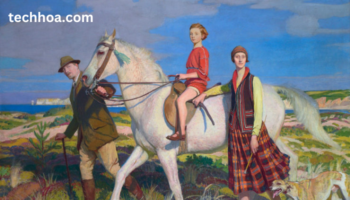Entertainment, in its myriad forms, has always been a mirror reflecting the evolving tastes and technologies of society. From the humble beginnings of shadow plays and traveling minstrels to the immersive digital experiences of today, the journey of entertainment is a fascinating narrative of innovation and cultural transformation. Explore a wide range of movies and TV shows on SDMoviesPoint2. Stream or download your favorite content in high quality for an unparalleled viewing experience.
Early Beginnings: From Theater to Cinema
The roots of modern entertainment can be traced back to ancient civilizations where storytelling was woven into rituals and communal gatherings. The emergence of theater in ancient Greece brought narratives to life through live performances, setting the stage for what would later become an enduring form of artistic expression.
Fast forward to the late 19th century, when the invention of motion pictures revolutionized the entertainment landscape. The Lumière Brothers’ first public film screening in 1895 marked the birth of cinema, captivating audiences with moving images that transcended the limitations of static photographs. Silent films gave way to “talkies” in the 1920s, introducing synchronized sound and expanding the emotional depth of storytelling.
Television and the Golden Age
The mid-20th century witnessed another transformative leap with the advent of television. The 1950s and 60s are often hailed as the Golden Age of television, characterized by iconic shows like “I Love Lucy,” “The Twilight Zone,” and “The Ed Sullivan Show.” Television not only brought entertainment directly into people’s homes but also fostered cultural conversations and shaped collective identities.
The Digital Revolution: Entertainment in the Digital Age
The turn of the millennium marked the onset of the digital revolution, propelling entertainment into a new era of interactivity and accessibility. The internet democratized content creation and distribution, empowering individuals to produce and share their own stories on platforms like YouTube and social media. Streaming services like Netflix, Hulu, and Amazon Prime Video further disrupted traditional media models, offering on-demand access to a vast library of films, TV shows, and original content.
Simultaneously, video games evolved from pixelated arcade games to immersive virtual worlds with cinematic narratives and lifelike graphics. Esports emerged as a global phenomenon, transforming competitive gaming into a spectator sport with tournaments drawing millions of viewers worldwide.
The Rise of Virtual Reality and Augmented Reality
Looking forward, the integration of virtual reality (VR) and augmented reality (AR) promises to redefine the boundaries of entertainment. VR headsets transport users into fully immersive environments, where they can interact with digital worlds and narratives in unprecedented ways. AR technology overlays digital information onto the physical world, enhancing live experiences such as concerts, theater performances, and theme park attractions.
Conclusion: Entertainment in Flux
As we navigate the ever-changing landscape of entertainment, one thing remains certain: its capacity to captivate, inspire, and provoke thought endures. From the flickering images of early cinema to the boundless possibilities of virtual reality, the evolution of entertainment mirrors our relentless pursuit of new experiences and narratives. As technology continues to advance and cultural tastes evolve, one can only imagine what forms of entertainment lie ahead, waiting to be discovered and embraced.
In essence, “Lights, Camera, Action” isn’t just a call to start filming—it’s a testament to the enduring power of entertainment to illuminate our imaginations and shape our collective story.






